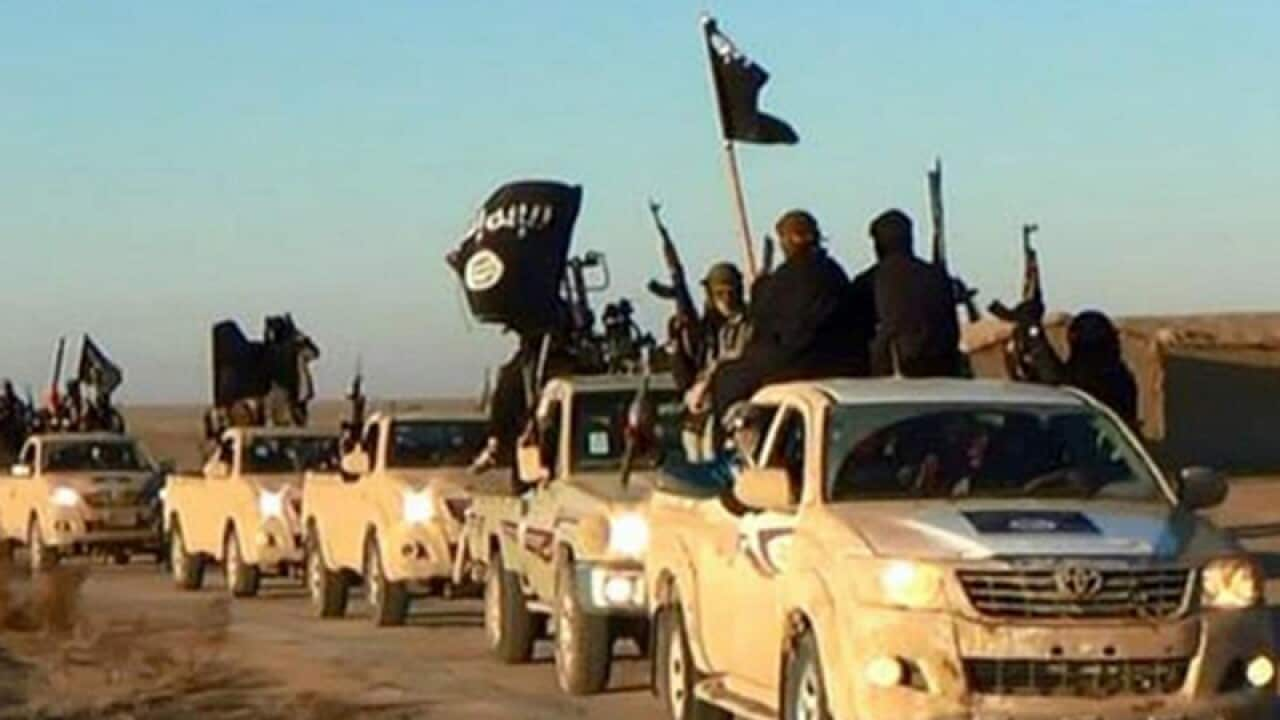The self-proclaimed Islamic State is teetering closer to losing a devastatingly long and deadly battle in the Middle East, but terrorism experts have warned that won’t be the end of the group and associated threats.
A report commissioned by independent policy think tank the Lowy Institute, , said a prospective collapse of Islamic State’s caliphate in Iraq and Syria would likely increase the number of foreign fighters.
“I think unfortunately what we’re seeing is not the end, but a new beginning,” co-author Lydia Khalil told SBS.
“Instead of calling foreign fighters into Iraq and Syria as [IS] had previously done about two years ago, they’re no longer doing that and instead are saying, ‘If you want to link up to our cause, stay where you are and commit violent acts’.
“These contra-foreign fighters, who have been battle-hardened and have become extremely networked in Iraq and Syria, are going to pose a very systemic and significant threat to the international community at large."
While some fighters will remain in the heart of the conflict and make a last stand until they either die or are wounded, the report explained that others would return to their home countries.
Of those who escape the conflict, it is expected that they will be either be disillusioned from the fighting, or seek to carry out further attacks.
“Those returning foreign fighters will be playing a significant part in that global strategy that ISIS is now employing,” Ms Khalil said.
“As ISIS has lost ground, has lost territory, we’ve seen that highly correlated with international attacks as we saw of the downing of the Russian airliner, in Paris, in Brussels, in these renewed calls for attacks in the west."
Is history repeating?
The report draws parallels with recent conflicts in and around the Middle East which led to domestic threats from returning foreign fighters.
“We take a look at what happened in Afghanistan – the Afghanistan jihad is what begot us Al Qaeda in its current form after all. Without the Afghanistan jihad, I don’t think we would have seen Al Qaeda as it is,” Ms Khalil said.
“The same thing happened in Bosnia; in Chechnya; Libya; other conflict areas."
She said what makes Iraq and Syria so different "is the length and the severity of the fighting, [and] the role that foreign fighters have played in that conflict".
"They have usually been used to perpetrate the most horrific acts of violence in the Islamic State. They have been operational commanders, they have been propagandists as well and recruiters," she said.
Threat to domestic security?
Ms Khalil added that Australia was still a potential target, but believed the national security threat was not as significant as European countries.
“Australia is on this organisation’s radar, it is on other jihadi organisations’ radar, and it doesn’t just face a threat posed by the 110 or so Australian fighters who have gone to that territory but other fighters who are globally linked who might see an opportunity in Australia,” she said.
Along with coauthor Dr Rodger Shanahan, Ms Khalil concluded that stronger collaboration and intelligence sharing between international networks – including about border protection systems - was the most effective strategy to contain any looming threat.
“I think the Australian security and intelligence agencies are some of the best in the world, they are on top of this threat,” she said.
"I do think one of the things that it can do better, and many countries can do better is to seek to form an international consensus on what to do about this foreign fighter problem. Promote greater intelligence sharing, particularly on this issue, and particularly among nations who do not have a record of intel sharing.”

